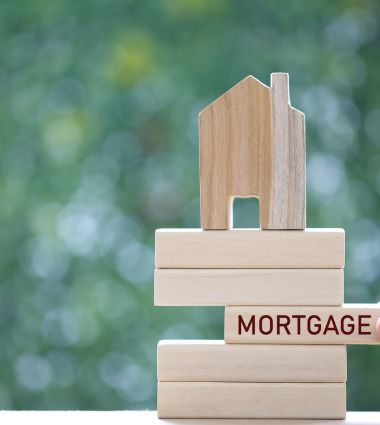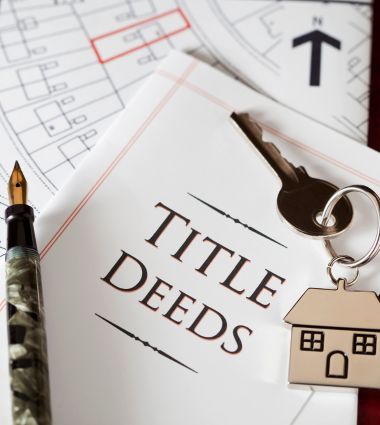Choosing a Mortgage — Tips and Advice
Ready to take the plunge into homeownership?
It’s like diving into a vast pool where each choice can make ripples across your financial future. Instead of following the usual path of overwhelming options and jargon, let's break it down in a straightforward, no-nonsense way.
Think of this as your friendly guide through the maze of mortgage decisions, helping you understand what really matters and how to pick a loan that feels right for you.
We'll take a look at the conditions of choosing a mortgage together.
Understanding the Different Types of Mortgages
When you're in the market for a home loan, it's important to understand the various mortgage options available. Let's break down the main types you'll encounter.
Conventional vs. Government-Backed Loans
Conventional mortgages are the most common type, generally offered by banks and credit unions. They're not insured by the government and often require a higher credit score.
On the flip side, government-backed loans like FHA, VA, and CMHC-insured mortgages offer more flexible terms, especially for first-time homebuyers or those with lower credit scores.
Fixed-Rate vs. Adjustable-Rate Mortgages
Fixed-rate mortgages keep the same interest rate throughout the loan term, providing predictable monthly payments.
Adjustable-rate mortgages (ARMs) start with a lower rate that can change over time, which might save you money initially but carries more risk long term.
Jumbo Loans
For high-value properties that exceed the limits set by mortgage corporations, jumbo loans come into play. These often have stricter requirements and higher interest rates due to the increased risk for lenders.
The right mortgage for you depends on your financial situation, long-term goals, and risk tolerance. It's always wise to shop around and consult with a mortgage professional to find the best fit for your needs.
Factors to Consider When Choosing a Mortgage

When you're on the hunt for the perfect mortgage, there's a lot to think about. Let's break down some key factors that'll help you make a smart choice.
Your Credit Score Matters
Your credit score is like your financial report card. It's one of the first things lenders look at, and it can make or break your mortgage application.
A higher score often means better interest rates and terms. So, before you start house hunting, take a peek at your credit report and see if there's room for improvement.
Interest Rates: The Long Game
The interest rate you're offered can have a huge impact on your monthly payments and the total cost of your home over time.
Even a small difference can add up to thousands of dollars over the life of your loan. Keep an eye on market trends and don't be shy about shopping around for the best rates.
Know Your Loan Types
Fixed-rate, variable-rate, open, closed – there's a whole world of mortgage types out there. Each has its pros and cons, and what works for your neighbor might not be the best fit for you.
Take the time to understand the different options and how they align with your financial goals and risk tolerance.
Remember, choosing a mortgage is a big decision — don't rush it, and don't be afraid to ask questions. It will be a great benefit to you in the future if you do your research now.
Tips for Getting the Best Mortgage Rates
Getting a great mortgage rate can save you thousands over the life of your loan. Here are some smart strategies to help you snag the best deal:
Boost Your Credit Score
Your credit score is like your financial report card. Lenders use it to determine how risky you are as a borrower. A higher score can unlock lower interest rates.
Pay your bills on time, keep credit card balances low, and avoid applying for new credit before house hunting.
Save for a Larger Down Payment
The more you can put down, the less you'll need to borrow. This reduces the lender's risk, which often translates to better rates.
Aim for at least 20% to avoid costly mortgage insurance. If that's not feasible, even a slightly larger down payment can make a difference.
Explore Alternative Options
Don't limit yourself to traditional fixed-rate mortgages. Variable-rate mortgages often start with lower rates, which could be advantageous if you're not planning to stay in the home long-term.
Some lenders offer "blend and extend" options or cash-back mortgages. Shop around and compare offers from various lenders, including credit unions and online mortgage providers.
Avoiding Common Mistakes When Choosing a Mortgage
When you're getting started with the mortgage process, there are a few common mistakes you'll want to avoid. Let's go over some of these pitfalls and talk about how to sidestep them.
Shop Around – Don’t Settle for the First Offer
A common mistake is grabbing the first mortgage offer that comes your way. It might be tempting to go with what's easy, but spending a little extra time to shop around can really pay off.
Different lenders offer different rates and terms, and even a small difference can add up over time. So, make sure to compare offers from at least three to five lenders. It might seem like a hassle, but this small effort could save you a lot of money in the long run.
Check Your Credit Score
Before you start the mortgage application process, take a look at your credit score. It’s a bit like checking your outfit before an important event — you want to make sure everything looks good.
A better credit score can lead to lower interest rates, which means smaller monthly payments. If your score isn’t as high as you'd like, you might want to work on improving it before you apply.
Paying off debt, fixing any mistakes on your credit report, or just waiting a bit after opening new credit accounts can all help.
Get Pre-approved
Skipping the pre-approval step is another common mistake. Think of pre-approval as your pass to start looking for houses.
It not only helps you understand how much you can afford, but it also shows sellers that you’re serious about buying. This can make your offer more appealing in a competitive market and might even speed up the process when you find your ideal home.
Overall, doing a little homework before diving into the mortgage process can help you avoid stress and potential mistakes. So, take your time, do some research, and get ready for a smoother journey to homeownership.
How Your Mortgage Choices Affect Your Future

The mortgage choices you make now can greatly impact your financial future. Let’s break down some important points to keep in mind:
Understanding Amortization
The length of your mortgage's amortization period plays a big role in how quickly you build equity in your home.
A shorter amortization period means you’ll pay off your mortgage faster, which helps you build wealth more quickly, but it also comes with higher monthly payments.
On the other hand, a longer amortization period lowers your monthly payments but slows down your equity growth.
Keeping an Eye on the Market
What you think about future housing market trends can affect how much mortgage debt you’re willing to take on. If you believe home prices will rise, you might choose to borrow more to take advantage of potential gains.
Nonetheless, it’s important to remember that borrowing more also comes with increased risk, especially if the market doesn’t perform as expected.
Planning for Retirement
Paying off your mortgage before you retire can give you peace of mind and free up your finances during retirement.
If this is part of your plan, you might want to make extra payments or choose a shorter amortization period to pay off your mortgage sooner.
Importance of Flexibility
Some mortgage options offer more flexibility. Open mortgages allow you to make extra payments or pay off your balance without penalties.
Portable mortgages can be transferred to a new home, and assumable mortgages let the buyer take over your current mortgage terms. These features can be useful as your financial situation or plans change over time.
Role of a Real Estate Lawyer in Choosing a Mortgage
When you're steering through the complex world of mortgages, having a real estate lawyer in your corner can be a game-changer.
These legal professionals play a very meaningful role in ensuring your mortgage process goes smoothly and protects your interests.
Contract Review and Preparation
Your real estate lawyer will carefully review and prepare all the necessary contracts. They'll make sure every 't' is crossed and every 'i' is dotted, providing all terms are clearly stated and in your best interest.
This attention to detail can save you from future headaches ( and money) down the road.
Liaising with Sellers' Lawyers
One of the trickier aspects of getting a mortgage is dealing with existing mortgages on the property. Your lawyer will work directly with the sellers' lawyers to discharge any existing mortgages and replace them with your new ones.
This process can be complex, but the best real estate lawyer can handle it seamlessly.
A Lender Requirement
Here's an interesting tidbit: mortgage lenders actually require the use of lawyers to close mortgages. This requirement underscores just how important a lawyer's role is in the process.
They're not just an optional extra - they're a necessary part of the team that'll help you secure your dream home.
So that was all about choosing a mortgage. Choosing a mortgage doesn't have to be a total headache. Take your time, do your homework, and don't be afraid to ask questions.
Keep in mind, that this is likely the biggest purchase of your life, so you want to get it right. Chat with a few different lenders, crunch those numbers, and go with your gut.
At the end of the day, the best mortgage is the one that fits your unique situation and helps you achieve your homeownership dreams. Now go forth and conquer that housing market - you've got this.
Real Estate
Family Law
Wills & Estates
Immigration
Join Our Mailing List.
Sign up with your email to receive our newsletter and stay informed about the latest legal developments and special offers.































































